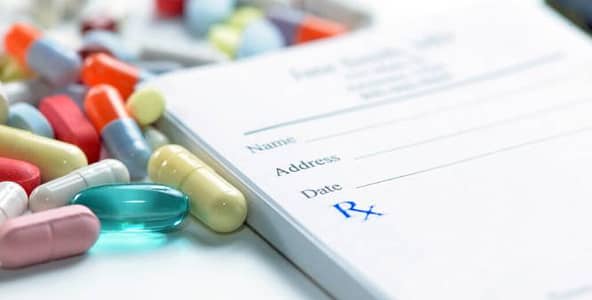

What is the definition of prescription fraud under HSC 11153?
A prescription for a controlled substance shall only be issued for a legitimate medical purpose by an individual practitioner acting in the usual course of his or her professional practice. The responsibility for the proper prescribing and dispensing of controlled substances is upon the prescribing practitioner, but a corresponding responsibility rest with the pharmacist who fills the prescription.
What is the mental state required for a violation of HSC 11153?
There is no mental state required for a violation of Health and Safety Code 11153 HS. The operative word is shall. Shall denotes a mandatory initiative.
What is the definition of a controlled substance under HSC 11153?
A controlled substance must be a chemical that is defined by Statute under Health and Safety Code 11054- 11058, as a Schedule I, II or III. And if it is not listed in any of the Schedules then the chemical must have a stimulating or hallucinogenic effect.
Who is criminally liable for a violation of Health and Safety Code 11153 HS?
All medical professionals that are licensed and in good standing by the Medical Board of the State of California; the Board of Psychology; the Board of Psychiatry and the Board of Pharmacy. Any medical practitioner that within the ordinary course of their practice has the association of dispensing, prescribing, or filling a prescription for a chemical or medication listed as a controlled substance. Examples of medical professionals would include physicians, psychologists, physiatrists, pharmacists, CNAs, RNAs and nurses. Since this is a general intent Statute, they are vicariously liable for the conduct of their agents who work with them in the course of their business. They have a duty of care to check all prescriptions originating from the medical practitioner and funneled to be filled in the pharmacy.
Is there a heightened duty of care at the pharmacy to avoid a violation of HSC 11153?
Yes, pharmacies are where the medications get disseminated to the general public. Because of the presence of Prescription Mills, or locations where a pharmacist and their agents do not check the quantities of the prescriptions to match them with the correct profiles and needs of their customers; or verify the needs of the prescriptions to the alignments or mental conditions with the originating physician. If there is no verification it is deviation of their medical responsibilities under the license prescribed to them is an issue. Especially if a customer is filled with an inaccurate amount of medication and an overdose result; or the overfill might prompt the customer to sell the purchased quantity in the medium of a drug sale. This includes making sure their employees are capable, under mandated ethics, to perform the same checks and balances.
Is there an exception to a violation of Health and Safety Code 11153 HS?
Yes. If the prescription of a chemical substance listed as a Schedule I, II, III is administered during a medical clinic or entity that is a part of a controlled study, foundation or research that qualifies under government grant to treat addiction.
Are the penalties for a violation of Health and Safety Code 11153 HS?
A violation of Health and Safety Code 11153 HS can be charged as a misdemeanor or felony. As a misdemeanor the penalties include confinement not exceeding 1 year in jail and fines not exceeding $1000 dollars. As a felony, penalties include confinement terms of 16 months, 2, or 3 years in prison, with fines not exceeding $20,000 dollars.
What are examples of violations of Health and Safety Code 11153 HS?
What are examples of defenses for a violation of HSC 11153?
If you are charged with a violation of Health and Safety Code 11153 HS call Law Mart today.
Call LAW MART for a FREE Case Review: 310-894-6440

Copyright © 2024 law – Powered by AmelCS